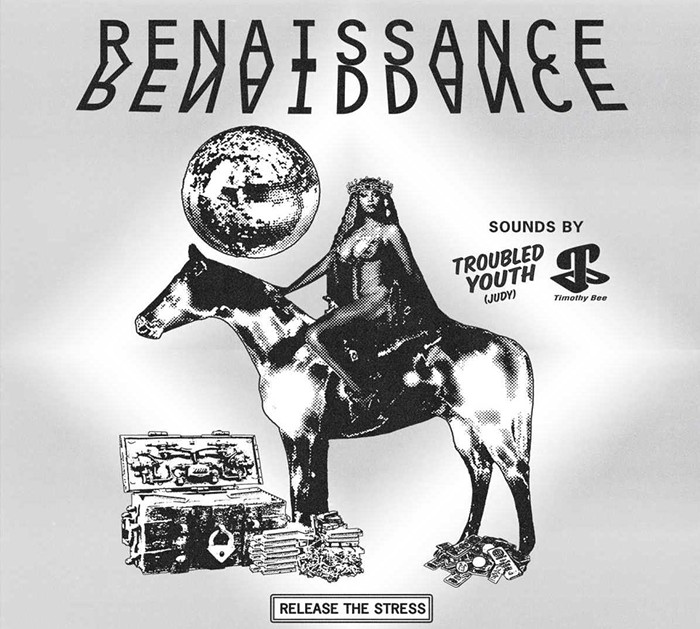PORTLAND, WE LOVE YOU but you are bringing us down. It's dark when we leave for work, and even darker when we get home. It's miserable, wet, cold, and not a damn thing will change until next spring. The Taxpayers have the right idea—get the hell out while the getting is good.
"It's this plan we've had in the works for a couple of years. The idea was to escape the Portland winter for as long as we could," explains frontman Rob Taxpayer (the band remains loyal to the Ramones policy of punk band surnames), discussing his band's dreams of a punk-rock timeshare. The concept is simple: release a new album—in this case, the Taxpayers' finest recording to date, To Risk So Much for One Damn Meal—hop in a van, tour until you find yourself basking in the Florida sun, and then stay there until Portland wakens from its monochromatic winter slumber. An extended tourcation, if you will.
"We're gonna tour down there and live in Florida in an old storage space for two months before coming back. [The units are] in the industrial areas in southern Florida, they're five blocks from the beach and they have these enormous garages." Yes, a storage garage. The rent is dirt cheap, electricity plentiful, no noise complaints from the neighbors, and if you need to use the facilities, "the ocean's right there" as the band points out. The Taxpayers might be snowbirds, but their winter migration is just about as punk rock as you can get.
Which is fitting for the band—membership ranges from five permanent members to even more for local shows—who labored over To Risk So Much for over a year, recording it in warehouses, homes, public parks, preschool classrooms, and just about every structure except a Florida storage unit. Considering its unorthodox inception, it's only fitting that To Risk So Much be released in the following formats: LP, cassette, pay-what-you-can digital download, and (of course) a fanzine.
In its LP format, To Risk So Much thrashes about as a jittery livewire of yelped vocals and a cacophony of reckless instrumentation—horns, accordions, harmonicas, and banjos all cram their way onto the album. It's high-strung basement punk at its finest, but performed by a band unafraid to expand their musical repertoire—no matter how deliberately sloppy—to include elements of back-porch bluegrass, anthemic rock and roll, and short blasts of vintage hardcore.
Album opener "The Windows Break" rises with a harmonica's howl before settling in with the panicky vocals of Rob Taxpayer, whose rushed delivery recalls a younger John Darnielle, had the Mountain Goats singer taken a drastically different musical path. Meanwhile "Some Kind of Disaster Relief" is a pure haunted sideshow of barked vocals and some seriously dark subject matter ("the love of my life smoking crack in the kitchen"), a similar lyrical path traveled by the horn-heavy "Everybody Just Stood There," which channels the societal apathy of Phil Ochs' underappreciated masterpiece "Outside of a Small Circle of Friends."
Yet no matter which swath of musical real estate the Taxpayers find themselves on in any given song, the following track will be an entirely new destination. This restlessness isn't limited to their music alone, as the Taxpayers' lyrics tend to veer away from the smash-the-state punk theatrics and toward urgent, personalized call-to-actions.
"Everything is so emphatically sincere that it becomes overwhelming after a certain point," says Rob Taxpayer. "That's the music we make, for sure, but at the same time it's important to have outlets in life." For the band this comes in the form of a musician who just might be the polar opposite of everything punk has ever stood for: the man, the myth, the puka shells—Jimmy Buffett.
In fact, while on their exodus to the Sunshine State, the Taxpayers plan on forming a (non-ironic, it should be noted) Buffett cover band on the side. By day they'll be Coconut Telegraph (named for the 1981 Buffett album of the same name), playing to tourists in the sun, and at night they'll be the Taxpayers, booking shows in their storage space home. As Rob Taxpayer explains it, "If you spend all this time immersed in emotional, psychological, and intellectual sincerity, then you miss out on all the fun in life, and I feel like Jimmy Buffett represents the fun in life."



















